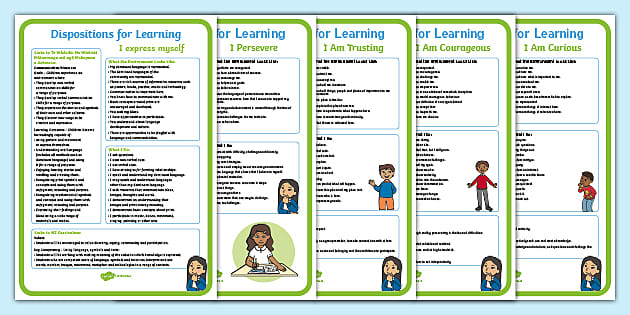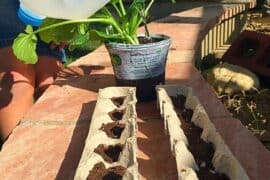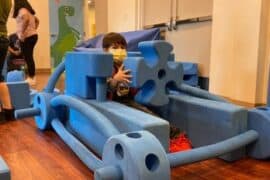Fostering Positive Learning Dispositions in Young Minds
Welcome, wonderful parents! You are embarking on one of the most enchanting and crucial aspects of your little one’s journey – understanding and nurturing their learning dispositions in early childhood. In the world of tiny tots where every day is a new adventure, recognizing the right learning attitudes and dispositions can be the wind beneath their wings – fueling their desire to explore, learn, and grow!
What Are Learning Dispositions?
Before we dive into the charm of developing these dispositions, let’s demystify what they are. Learning dispositions are the attitudes, habits of mind, and the way children approach learning and exploring their environment. They are the building blocks of their educational foundation, shaping not just academic success, but their overall personal growth and ability to navigate the world.
Nurturing Curiosity and Resilience
As the navigators of their early educational odyssey, your role is to steer your child towards beacons of curiosity and resilience. But how do you foster such traits? It’s part participation, part observation, and a whole lot of love and support. From nurturing their inquisitiveness to encouraging them when they stumble, finding the balance can make all the difference.
- Encourage Exploration: Allow your children to touch, move, and explore their surroundings. This tactile interaction with the world is like having a conversation with the universe – it speaks back to them in wonders and discoveries!
- Embrace Mistakes: Turn every whoopsie-daisy into a learning opportunity. A dropped puzzle piece or a tower tumbling down isn’t a mistake – it’s a stepping stone to understanding gravity, balance, and the joy of trying again.
Understanding Key Learning Dispositions
To truly champion your children’s educational voyage, let’s understand some of the key dispositions that contribute to effective learning.
- Curiosity: The sparkle in their eye when they ask “Why does the moon follow us?” – that’s curiosity. It’s the eagerness to know more about their world and how it works.
- Persistence: The relentless attempts to fit a square peg into a round hole, and then finding the right one – that’s persistence. It’s about not giving up when challenges arise.
- Cooperation: The delightful ‘Can I help?’ or when they offer a toy to a friend – that’s the spirit of cooperation. Learning to work alongside others is a valuable life skill.
- Confidence: Watch them beam with pride when they’ve mastered a new task on their own – that’s confidence. It’s about believing in one’s abilities and feeling equipped to tackle new challenges.
As we continue to explore this exciting topic, remember, dear parents, you are cultivating the seeds of life-long learners. Cherish every question, celebrate every small success, and guide them with gentle hands and open hearts.
Practical Tips for Parents: Everyday Strategies to Develop Learning Dispositions
Your home is the first classroom, and everyday life is rich with lessons. Let’s look at some wonderful ways to infuse learning disposition development into regular family routines:
- Creating a Learning-Rich Environment: Surround your children with books, art supplies, musical instruments, and educational toys that spark interest and invite interaction.
- Modeling the Dispositions: Children imitate their superheroes – you! Show them what it means to be curious, to persist, to cooperate, and to be confident, through your own actions.
- Engaging in Conversations: Talk to your children about what they’re doing, thinking, or feeling. These dialogues can encourage them to articulate their thoughts and feelings, fostering critical thinking and emotional intelligence.
Remember, each child is a unique individual, and as you joyfully navigate the tides of early childhood development, adapting your approach to best meet your child’s personal needs will be key. Trust in your instincts, rely on your village, and rejoice in the joys of parenting – you’re doing great!
In the next part of our guide, we’ll delve deeper into strategies tailored for different types of learners and share insights from experts in early childhood education. Stay tuned, as we continue to shed light on the magical world of learning dispositions and how you can support your young explorer’s journey into the vast sea of knowledge and personal growth.

Five Essential Tips for Preparing to Foster Learning Dispositions in Early Childhood
Embarking on the path of nurturing early learning dispositions requires insight and preparation. Here are five key considerations to guide you:
1. Understand Your Child’s Developmental Milestones
Recognizing where your child stands developmentally is crucial. This knowledge helps gauge which dispositions are appropriate to cultivate at each stage. For instance, a toddler may show early signs of curiosity by pointing at objects, while preschoolers can demonstrate more advanced problem-solving skills. Familiarize yourself with these developmental benchmarks to optimally support their growth.
2. Encourage Safe and Constructive Risk-Taking
Encouraging your child to take risks within a safe environment plays a significant role in developing resilience and confidence. Whether it’s attempting to climb slightly higher on the playground or trying a new activity, these experiences teach children to face challenges and overcome fears. However, always ensure that risks are age-appropriate and within a secure context.
3. Value the Power of Play
Play is not just a recreational activity; it’s a powerful learning tool. Through play, children naturally develop numerous dispositions such as creativity, collaboration, and communication. Provide diverse and stimulating play opportunities, whether it’s structured games or open-ended imaginative play, to facilitate a variety of learning experiences.
4. Create Routines and Structures
Consistency offers children a sense of security and can encourage educational habits. Establishing regular reading times or a designated ‘discovery hour’ where they are encouraged to ask questions and explore helps normalize learning as a part of life. These routines, however, should be flexible enough to adapt to your child’s current interests and needs.
5. Lead by Example
Children learn by watching the adults around them. Demonstrate positive learning dispositions such as enthusiasm for discovering new things, patience in problem-solving, and the grace to laugh at one’s own mistakes. By embodying these dispositions, you are your child’s first and most influential teacher.
In Conclusion
As you journey with your child through the pivotal early years, remember that fostering learning dispositions is a dynamic and evolving process. It requires patience, understanding, creativity, and above all, love. But with your warmth and wise guidance, your child can build an educational foundation that is not only robust but filled with the joys of learning. Be their guiding star, and watch them soar to incredible heights in their life-long pursuit of knowledge!
See more great Things to Do with Kids in New Zealand here. For more information see here
Disclaimer
The articles available via our website provide general information only and we strongly urge readers to exercise caution and conduct their own thorough research and fact-checking. The information presented should not be taken as absolute truth, and, to the maximum extent permitted by law, we will not be held liable for any inaccuracies or errors in the content. It is essential for individuals to independently verify and validate the information before making any decisions or taking any actions based on the articles.




